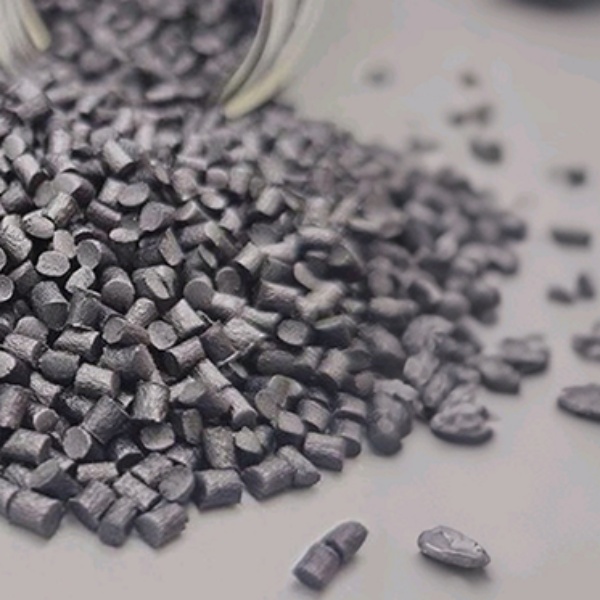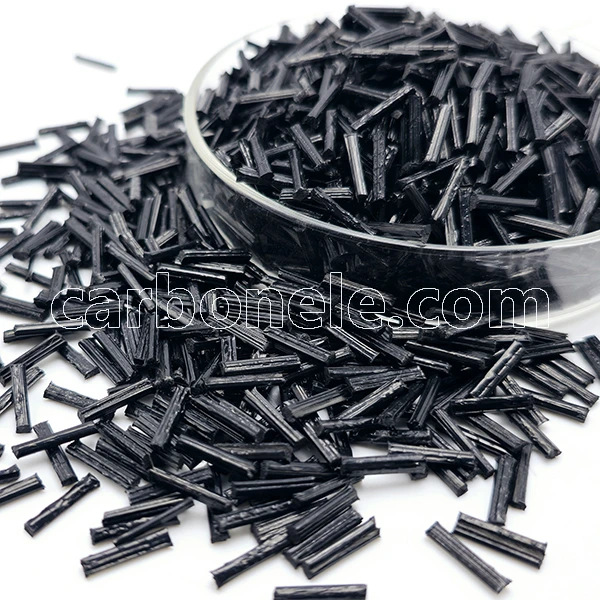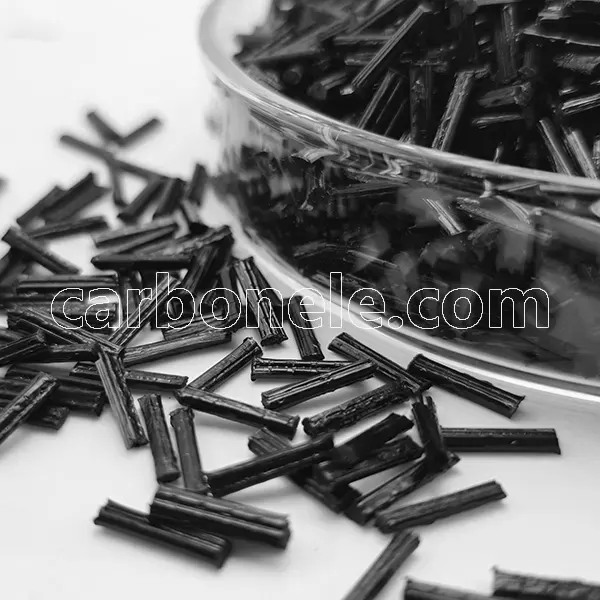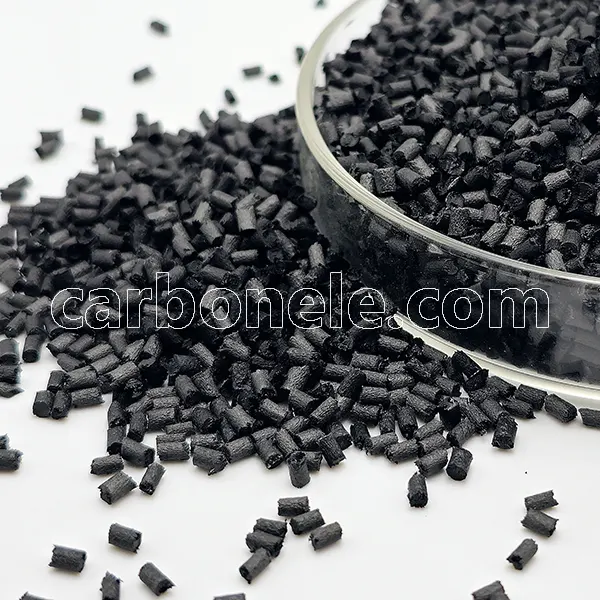PEEK-CF10: End Chemical Degradation In Harsh Environments - Carbon Fiber Compounds Manufacturer | Supplier
Stop chemical degradation with PEEK-CF10, a carbon fiber-reinforced PEEK composite. Defy harsh environments with superior chemical resistance, extreme thermal stability (up to 240°C), and enhanced mechanical strength. Ideal for oil & gas, aerospace, and chemical processing. Reduce maintenance costs and prevent downtime. Learn how.
PEEK-CF10: End Chemical Degradation In Harsh Environments
For decades, industries operating in harsh environments—such as oil and gas, aerospace, automotive, and chemical processing—have faced a persistent challenge:
the rapid degradation of materials exposed to aggressive chemicals, extreme temperatures, and mechanical stress.
Traditional metals, while robust, are prone to corrosion, heavy, and costly to maintain.
Standard polymers, though lighter, often succumb to chemical attack, swelling, or loss of mechanical integrity under duress.
This compromise between durability and practicality has led to frequent equipment failures, costly downtime, and safety risks.
Now, a groundbreaking solution emerges: PEEK-CF10, a carbon fiber-reinforced polyetheretherketone composite engineered to defy degradation in the most demanding conditions.
By combining the innate chemical resistance of PEEK with the enhanced mechanical properties of carbon fiber, PEEK-CF10 offers a transformative approach to material selection, empowering industries to operate reliably in environments where failure is not an option.
Understanding PEEK-CF10: The Science Behind the Solution
PEEK-CF10 is a high-performance thermoplastic composite comprising a PEEK matrix reinforced with 10% carbon fiber. This synergy creates a material with exceptional properties:
Chemical Inertness: PEEK is inherently resistant to a wide range of chemicals, including acids, bases, hydrocarbons, and solvents.
The addition of carbon fiber further reduces moisture absorption (as low as 0.10% per ASTM D570), minimizing swelling and hydrolytic degradation.
Thermal Stability: With a heat deflection temperature of 310°C (1.8 MPa, unannealed) and long-term performance up to 240°C, PEEK-CF10 maintains integrity in high-temperature environments where other plastics fail.
Mechanical Strength: The carbon fiber reinforcement enhances stiffness (flexural modulus up to 7,790 MPa) and tensile strength (186 MPa yield strength), providing structural resilience against mechanical stress and pressure fluctuations.
This combination makes PEEK-CF10 ideal for components exposed to simultaneous thermal, chemical, and mechanical challenges, such as seals, valves, pump parts, and aerospace fittings.
The Problem of Chemical Degradation in Harsh Environments
In sectors like oil and gas, equipment faces constant exposure to corrosive fluids (e.g., H₂S, CO₂), high-pressure systems, and elevated temperatures.
Similarly, aerospace components endure aviation fuels, hydraulic fluids, and temperature cycles from -50°C to over 200°C. Traditional materials struggle:
Metals undergo galvanic corrosion, requiring coatings and frequent replacement.
Standard Plastics (e.g., nylon, PTFE) swell, crack, or lose strength when exposed to chemicals or heat.
These failures lead to unplanned shutdowns, safety hazards, and high lifecycle costs. PEEK-CF10 addresses these issues by offering a lightweight, corrosion-proof alternative that outperforms both metals and conventional polymers.
How PEEK-CF10 Solves Chemical Degradation
Superior Chemical Resistance:
PEEK-CF10‘s dense molecular structure and low surface energy prevent chemical permeation.
Unlike metals, it does not corrode electrochemically; unlike lower-grade plastics, it resists solvent-induced cracking and oxidation.
This is critical in chemical processing plants where exposure to aggressive media like sulfuric acid or ketones is common.
Enhanced Thermal and Mechanical Performance:
The carbon fiber reinforcement reduces thermal expansion (coefficient as low as 0.000038 cm/cm/°C), ensuring dimensional stability during temperature swings.
Its high stiffness and strength (impact resistance up to 530 J/m un-notched)prevent deformation under load, reducing wear and tear.
Long-Term Reliability:
PEEK-CF10 exhibits excellent creep resistance and fatigue endurance, maintaining performance over thousands of cycles.
This is vital for components like compressor seals or valve seats, where failure could cause leaks or system shutdowns.
Expert Insights: Industry Trends and Opinions
Industry Trends:
The adoption of advanced composites like PEEK-CF10 is accelerating, driven by the need for lightweight, durable materials in extreme environments.
According to a scientometric analysis, research on carbon fiber-reinforced PEEK composites grew at an annual rate of 5.54% from 2010–2023, with aerospace (42% of studies) and automotive applications leading the way.
The trend emphasizes metal replacement to reduce weight, improve efficiency, and cut maintenance costs. For instance, in aerospace, PEEK-CF10 is used for engine components and fuel system parts, where its resistance to aviation fluids and high temperatures aligns with safety standards.
Expert Opinion:
Dr. Xiangjuan Pang, a professor at Henan University of Science and Technology, whose team researched CF/PEEK composites, states:
“The interface modification between carbon fiber and PEEK matrix is crucial for enhancing chemical and mechanical performance.
Our work shows that surface-treated CF/PEEK composites exhibit up to 75% lower wear rates and improved resistance to environmental degradation, making them ideal for harsh applications.”
This highlights the importance of material engineering in maximizing PEEK-CF10‘s potential.
Real-World Case Study – Oil & Gas:
A major oil company replaced stainless steel valves with PEEK-CF10 components in offshore drilling equipment exposed to seawater and sour gas (H₂S). After 12 months:
Zero corrosion or chemical degradation observed.
Weight reduced by 60%, easing installation and logistics.
Maintenance costs dropped by 45% due to eliminated corrosion-related repairs.
This case demonstrates PEEK-CF10‘s capability to extend equipment life and reduce operational expenses in aggressive environments.
Scientific Data and Research Findings
Recent studies validate PEEK-CF10‘s resilience:
Thermal Degradation Resistance:
Research published in Polymer Degradation and Stability (2022) found that CF-reinforced PEEK withstands rapid heating up to 100°C/min with minimal degradation.
A new fluorenone peak detected at 1711 cm⁻¹ via FTIR spectroscopy served as a marker for degradation, showing less than 1% matrix decomposition under extreme conditions.
Wear and Friction Performance:
A 2025 study in Acta Polymerica Sinica showed that surface-modified CF/PEEK composites (using PEI and PAMAM treatments) reduced wear rates by 72.34% and friction coefficients by 11.63% under high loads (90 N) and speeds (200 rpm).
This is critical for components in moving contact with corrosive fluids.
Hydrolytic Stability:
Testing per ASTM D570 confirms PEEK-CF10‘s low water absorption (0.10%), ensuring negligible swelling or property loss in humid environments.
This outperforms nylons (which absorb up to 8% water) and even many metals prone to rust.
Applications Across Industries
Oil & Gas: Chemical injection pumps, pipeline seals, and downhole tools exposed to H₂S and brines.
Aerospace: Fuel system components, engine housings, and hydraulic parts resistant to Skydrol fluid and jet fuels1.
Chemical Processing: Valve seats, compressor rings, and bearing cages in contact with acids and solvents.
Medical: Sterilizable surgical instruments and implantable devices requiring biocompatibility and autoclave resistance.
The Future of Manufacturing with PEEK-CF10
As industries push into more extreme environments (e.g., deep-sea drilling, hypersonic flight), materials like PEEK-CF10 will become indispensable.
Advances in additive manufacturing now allow 3D printing of PEEK-CF10 parts, enabling rapid prototyping and complex geometries previously impossible with metals.
Future developments may focus on enhancing fiber-matrix interfaces for even greater chemical resistance.
Conclusion
PEEK-CF10 represents a paradigm shift in material science, offering an unparalleled solution to chemical degradation in harsh environments.
Its blend of chemical inertness, thermal stability, and mechanical strength addresses the core limitations of traditional materials, while expert insights and scientific data confirm its reliability.
For industries seeking to improve safety, reduce costs, and enhance performance, PEEK-CF10 is not just an option—it is the definitive upgrade for the future.
References
- “KetaSpire® CF10 LS1 AM Filament.” UL Prospector, 2023. https://www.ulprospector.com/plastics/zh-cn/datasheet/386930/ketaspire-cf10-ls1-am-filament?term=Syensqo&page=19
- “Detecting, Characterising and Assessing PEEK’s and CF-PEEK’s Thermal Degradation in Rapid High-Temperature Processing.” Polymer Degradation and Stability, Elsevier, 2022.
- DOI:10.1016/j.polymdegradstab.2022.110096.Tang, M. J., et al. “Effect of Interface Modification on Mechanical Properties and Friction and Wear Properties of Carbon Fiber/Polyetheretherketone Composites.” Acta Polymerica Sinica, 2025. DOI:10.11777/j.issn1000-3304.2024.24254.

Feature Product
-
PA12 LCF30 for Drone Fuselages & Wings
What do you know about PA12 LCF30? PA12 ...
-
Competitive Price PA6 LCF30 Composites
What’s it? PA6 LCF30, which stands...
-
ABS CF10 Compound ABS 10%CF Thermoplastic Compo...
What’s ABS CF10? ABS CF10 refers t...









